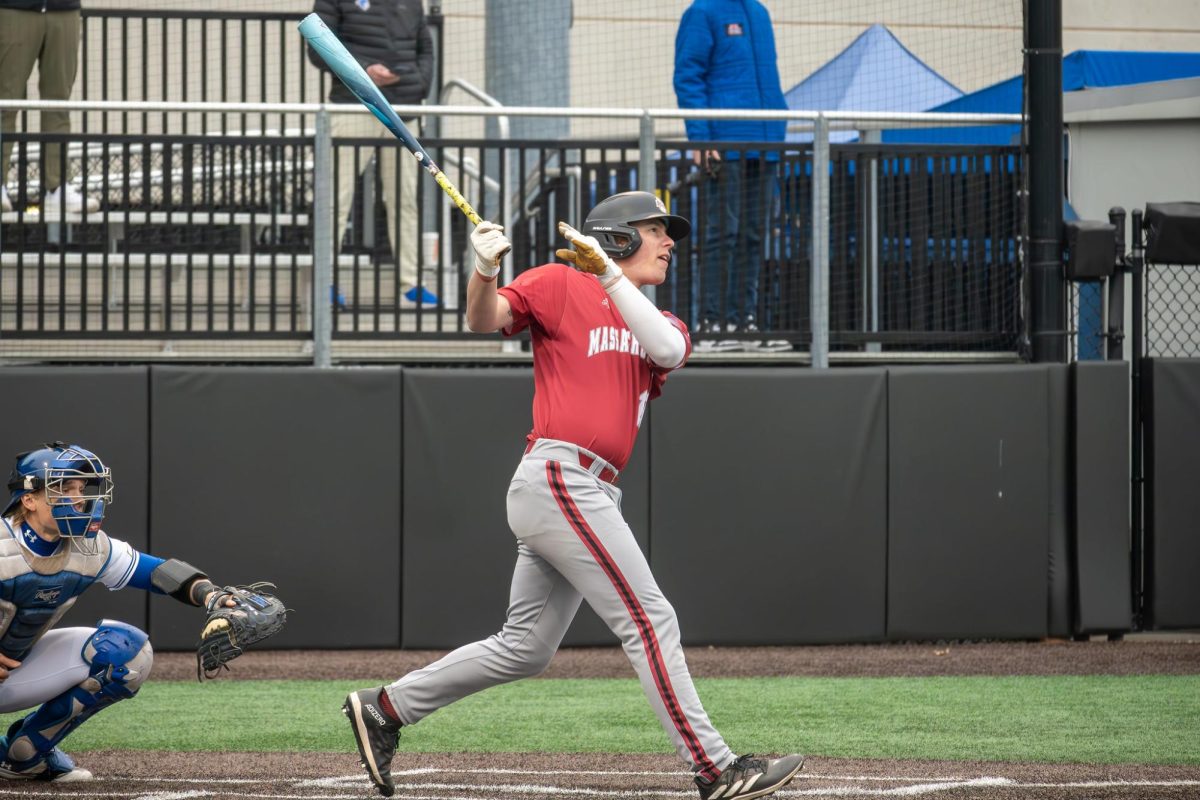
As The Massachusetts Daily Collegian highlights student activist groups throughout this week’s paper, Khalif Nunnally-Rivera, a senior geography major and the policy advocacy coordinator of Student Bridges, answered some questions regarding the student-run non-profit agency that advocates for access and affordability for underrepresented students in the Western Massachusetts area.
Stefan Geller: What kind of underrepresented students do you guys try to reach?
Khalif Nunnally-Rivera: We focus mostly on Springfield and Holyoke, so we’re focusing on students of color, students from low income backgrounds. Those are the main populations that we try to target.
SG: What kinds of practices do you guys have to help those students?
KNR: We offer a service learning class, and that class prepares students to go out into the community and mentor students in local areas. So we have a site in Springfield at one of the high schools, and we also have a site here in Amherst, and historically we’ve had a site in Holyoke and the schools there. So we try to work in this area and with those students, not so much as an academic support, but more in terms of guidance and leading them on a college bound pathway.
SG: How many students do you work with a year?
KNR: Probably 50 to 60 students.
SG: What made you want to join Student Bridges?
KNR: What made me want to join Student Bridges was the fact that it helped my local community. I’m a local resident from Springfield and seeing that there was something on campus that reached out to local communities, I feel like a lot of communities in Western Mass. are often overlooked by the university, so seeing that Student Bridges made that effort to reach out was good, also seeing the work and the activism that Student Bridges has done on campus.
SG: What kind of on-campus activism does Student Bridges do?
KNR: In the past we’ve hosted rallies related to Black Lives Matter. We’ve hosted rallies related to demands that students on campus are asking of administration in terms of diversity, so Student Bridges has played a pretty large role in the Chancellor’s diversity strategic plan. So in the past, a lot of us have been on board with evaluating that. Also, last year and this year we’ve been involved in Lobby Day. It’s a statewide day of action where all the public schools in Massachusetts send students to the statehouse to advocate for their free higher education.
SG: How does it feel to reach out to these types of kids and actually help them get into college?
KNR: It feels good, because a lot of people on our staff have also been these students, coming from communities where college wasn’t necessarily accessible, but seeming that we’re here, we made it here, and we’re all relatively successful in that aspect, it feels good to try to help other students have that success as well.
SG: Given the current political climate, how do you see Student Bridges’ work changing over the coming years?
KNR: I think Student Bridges and organizations like ours need to pay attention to what’s going on, pay attention to changes in policy and anything that might hinder students from being able to attain an education, and if things happen where there’s a lack of support from communities, whether it’s the government or local city governments, or cuts to school programs I think that Student Bridges really needs to step up and try to make up for that loss. I think it’ll give our cause a bit more urgency, and I think if that happens, hopefully we’ll see an increased interest in the agency and also more support for what we do.
SG: With the possibility that public school funding might be cut for charter schools, how might Student Bridges respond if that happens?
KNR: Public school we believe is a right for everyone, whether it’s public K through 12 or college education. So our views are going to stay the same, and it’s only going to make us fight harder for the University to understand that the students applying to this school from these areas might not have the same resources that other students have, and maybe that’ll make UMass increase the amount of resources that they offer to the prospective students in the community.
SG: What percentage of the students at UMass have this background?
KNR: I’m not sure about income level, but I know underrepresented students of color are about 10 percent – 10 or 11 percent.
SG: What kinds of things do you work on with the kids?
KNR: We talk to them about what the college application process is like, this is what college life is like, what are some challenges that you’re facing in your community and how can we support you …. We try to give them resources, scholarships, grants, even low-interest loans, ‘because sometimes a lot of these students just don’t know where to look in terms of resources to pay for school, so we try to help in that way. And also just try to guide them, like maybe if they can’t afford a four-year school, maybe start at community college and go that route.
Stefan Geller can be reached at [email protected] or followed on Twitter @StefanGeller.


















